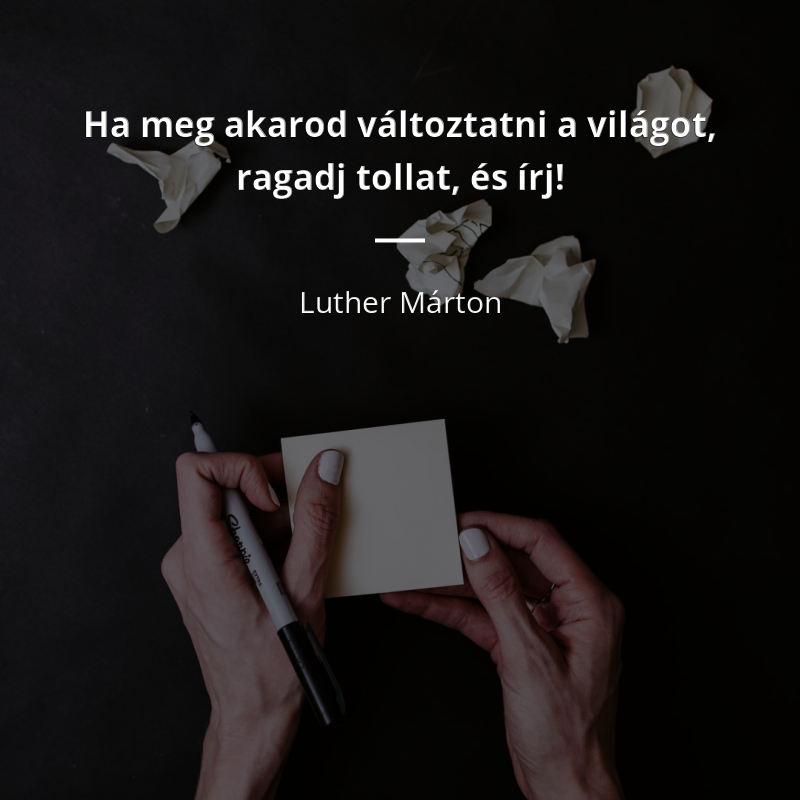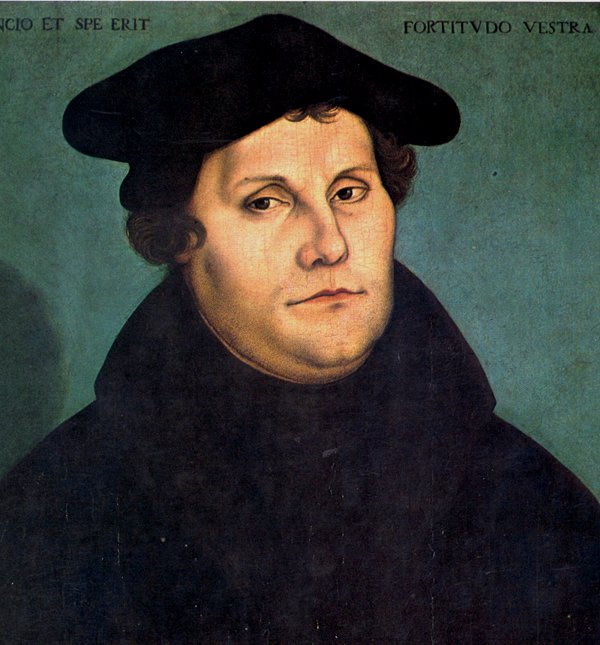
Luther Márton híres idézetei
Luther Márton Idézetek az erőről
http://hu.wikipedia.org/wiki/Er%C5%91s_v%C3%A1r_a_mi_Isten%C3%BCnk
Luther Márton Idézetek Istenről
„Itt állok, másként nem tehetek. Isten segítsen meg. Ámen.”
Állítólagos beszéde a Worms-i birodalmi gyűlésen. 1521 Április 18
Eredeti: Hier stehe ich, ich kann nicht anders. Gott helfe mir. Amen.
Luther Márton idézetek
„Az Értelem… az ördög legnagyobb szajhája.”
Eredeti: Vernunft... ist die höchste Hur, die der Teufel hat.
„Hála neked uram, mert azt hittem, hogy csak én vagyok így ezzel.”
Egy Luther-anekdota
„Doktor úr, nagyon nagy baj van.”
Mi a baj?
Az, hogy néha én magam sem hiszem, amit prédikálok.
Egy Luther-anekdota
Luther Márton: Idézetek angolul
Forrás: The Freedom of a Christian (1520), pp. 74-75
Forrás: Dictionary of Burning Words of Brilliant Writers (1895), p. 221
Forrás: The Freedom of a Christian (1520), p. 75
“The Clergy is the greatest hindrance to faith.”
58
Table Talk (1569)
Forrás: Commentary on the Epistle to the Galatians (1535), Chapter 2
Forrás: Commentary on the Epistle to the Galatians (1535), Chapter 2, Verse 6
D. Martin Luthers Werke, Kritische Gesamtausgabe, 61 vols., (Weimar: Verlag Hermann Böhlaus Nochfolger, 1883-1983), 52:39 [hereinafter: WA] 1544
Statement in defense of his writings at the Diet of Worms (19 April 1521), as translated in The Nature of Protestantism (1963) by Karl Heim, p. 78 Luther is often said to have declared, "Here I stand, I can do no other," before concluding with "God help me. Amen." However, there is no indication in the transcripts of the Diet or in eyewitness accounts that he ever said this. See "Disputed" section below.
The Precious and Sacred Writings of Martin Luther (1905) edited by John Nicholas Lenker; republished as Sermons of Martin Luther (1996), p. 291
1532
Denifle, Heinrich, Luther and Lutherdom http://www.archive.org/details/cu31924029249567, vol.1, part 1, tr. from 2nd rev. ed. of German by Raymund Volz, Somerset, England: Torch Press, 1917, (Cornell University Library 2009), ISBN 1112168176 ISBN 9781112168178, p. 305. Denifle cites Luther’s Sämtliche Werke (Vols 4-6 in 1), Erlangen-Frankfurt edition, 1865, Heyder & Zimmer, vol. vi, p. 401 http://books.google.com/books?id=zTMoAAAAYAAJ&pg=RA3-PA401&dq=%22und+fluchen+wie+die+Landsknecht%22&lr=#v=onepage&q=%22und%20fluchen%20wie%20die%20Landsknecht%22&f=false
Forrás: Temporal Authority: To What Extent It Should Be Obeyed (1523), p. 91
letter to the German rulers (1524), as quoted in The History of Compulsory Education in New England, John William Perrin, 1896
Forrás: Dictionary of Burning Words of Brilliant Writers (1895), p. 220
“The veneration of Mary is inscribed in the very depths of the human heart.”
Weimar edition of Martin Luther's Works (Translation by William J. Cole) 10, III, p. 313
Weimar edition of Martin Luther's Works, English translation edited by J. Pelikan [Concordia: St. Louis], Vol. 4, 694
“Since the law is good, the will, which is hostile to it, cannot be good.”
Thesis 87
Disputation against Scholastic Theology (1517)
Forrás: The Freedom of a Christian (1520), pp. 73-74
Forrás: On the Bondage of the Will (1525), p. 313-314
Forrás: On the Bondage of the Will (1525), p. 241, 253
Forrás: Commentary on the Epistle to the Galatians (1535), Chapter 2, Verse 19
Martin Luther as quoted in Tappert, Theodore G. (1959). The Book of Concord: the Confessions of the Evangelical Lutheran Church. Philadelphia: Fortress Press, p. 595
Weimar edition of Martin Luther's Works, English translation edited by J. Pelikan [Concordia: St. Louis], Vol. 11, Vol. 24, 107

